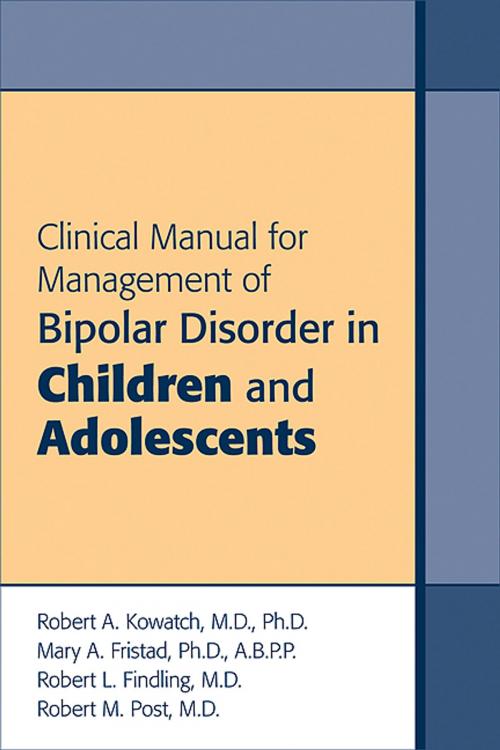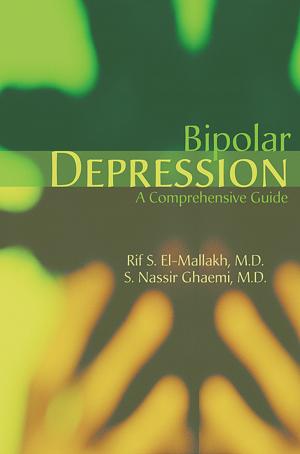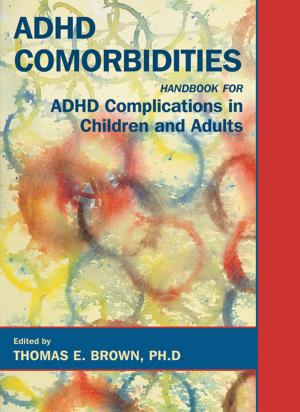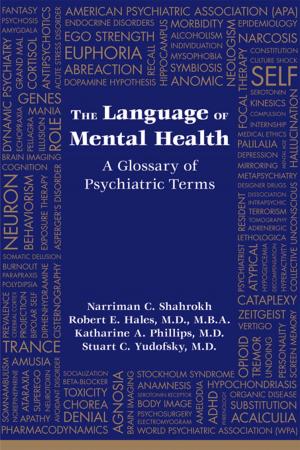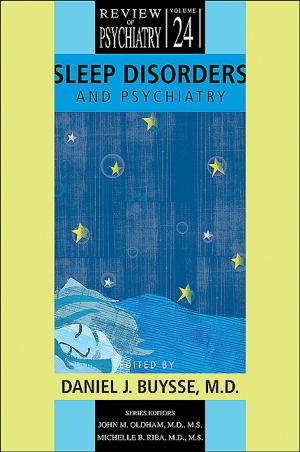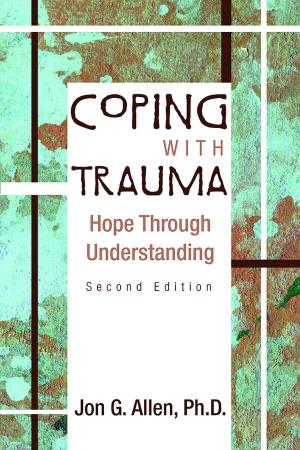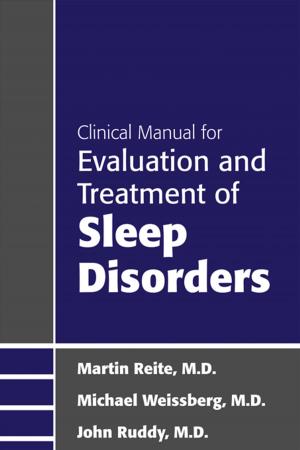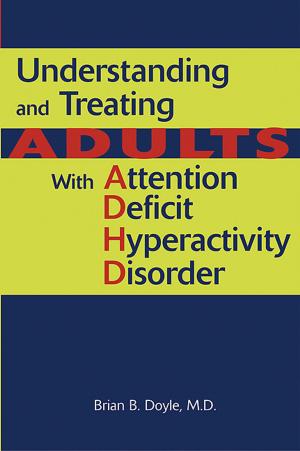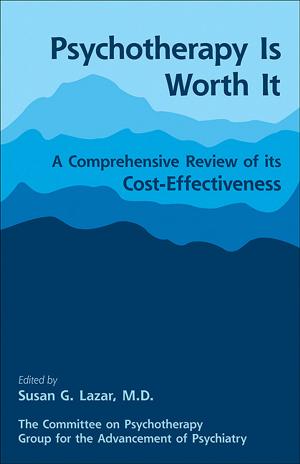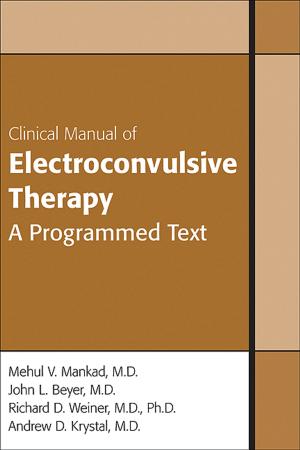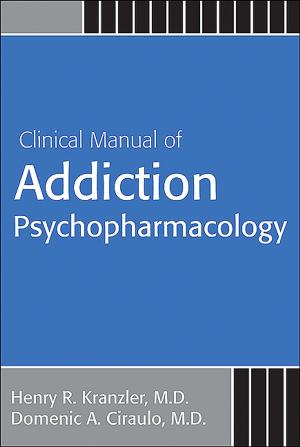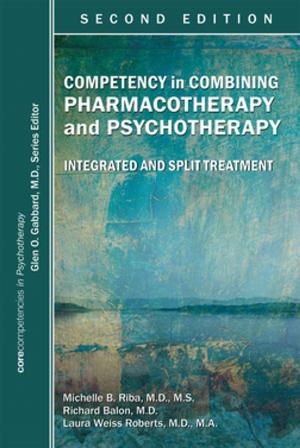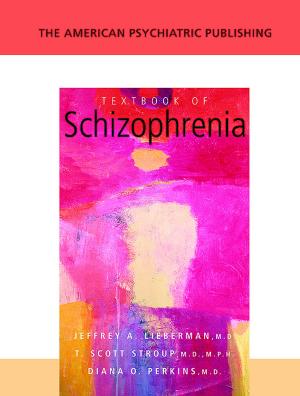Clinical Manual for Management of Bipolar Disorder in Children and Adolescents
Nonfiction, Health & Well Being, Psychology, Psychiatry, Medical, Specialties| Author: | Robert A. Kowatch, MD PhD, Mary A. Fristad, PhD ABPP, Robert L. Findling, MD MBA, Robert M. Post, MD | ISBN: | 9781585629022 |
| Publisher: | American Psychiatric Publishing | Publication: | February 20, 2009 |
| Imprint: | American Psychiatric Association Publishing | Language: | English |
| Author: | Robert A. Kowatch, MD PhD, Mary A. Fristad, PhD ABPP, Robert L. Findling, MD MBA, Robert M. Post, MD |
| ISBN: | 9781585629022 |
| Publisher: | American Psychiatric Publishing |
| Publication: | February 20, 2009 |
| Imprint: | American Psychiatric Association Publishing |
| Language: | English |
Clinical Manual for Management of Bipolar Disorder in Children and Adolescents was written in response to the growing body of knowledge surrounding pediatric bipolar illness and the underlying biological, environmental, and psychosocial influences that exacerbate symptoms and behavior. Written to provide clinically useful information about diagnosis and management, this manual is a comprehensive collection of empirical evidence, case studies, and the growing number of evidence-based reports on pediatric bipolar disorder over the past five years.
This manual also contains several chapters provided by Dr. Mary Fristad and her team at The Ohio State University -- experts in family and psychosocial aspects of pediatric bipolar disorder. Her contributions, along with vast clinical evidence and the expertise provided by Drs. Kowatch, Findling, and Post, help paint an accurate picture of everything from age onset to the effectiveness of various therapies. In this manual, clinicians can refer to the following tools: A clinical description of childhood and adolescent bipolar disorder Management strategies for the patient including daily mood charting Current medication strategies and tactics Ways to help patients through the educational system Resources for clinicians, parents and patients A review of the future directions for childhood and adolescent bipolar disorder
The many new developments in the field of pediatric bipolar disorder are affirming what this manual emphasizes -- that a combination of family and cognitive-behavior therapy can work in tandem with medical treatments to help young bipolar disorder patients achieve a more balanced life and a greater chance of controlling this illness later in life. The manual demonstrates how the medical community has shifted from asking, "Does bipolar disorder really exist in children and adolescents" to "How can we best predict, diagnose and treat this serious medical disorder" through a review of 25 years of study and insight.
Clinical Manual for Management of Bipolar Disorder in Children and Adolescents was written in response to the growing body of knowledge surrounding pediatric bipolar illness and the underlying biological, environmental, and psychosocial influences that exacerbate symptoms and behavior. Written to provide clinically useful information about diagnosis and management, this manual is a comprehensive collection of empirical evidence, case studies, and the growing number of evidence-based reports on pediatric bipolar disorder over the past five years.
This manual also contains several chapters provided by Dr. Mary Fristad and her team at The Ohio State University -- experts in family and psychosocial aspects of pediatric bipolar disorder. Her contributions, along with vast clinical evidence and the expertise provided by Drs. Kowatch, Findling, and Post, help paint an accurate picture of everything from age onset to the effectiveness of various therapies. In this manual, clinicians can refer to the following tools: A clinical description of childhood and adolescent bipolar disorder Management strategies for the patient including daily mood charting Current medication strategies and tactics Ways to help patients through the educational system Resources for clinicians, parents and patients A review of the future directions for childhood and adolescent bipolar disorder
The many new developments in the field of pediatric bipolar disorder are affirming what this manual emphasizes -- that a combination of family and cognitive-behavior therapy can work in tandem with medical treatments to help young bipolar disorder patients achieve a more balanced life and a greater chance of controlling this illness later in life. The manual demonstrates how the medical community has shifted from asking, "Does bipolar disorder really exist in children and adolescents" to "How can we best predict, diagnose and treat this serious medical disorder" through a review of 25 years of study and insight.
